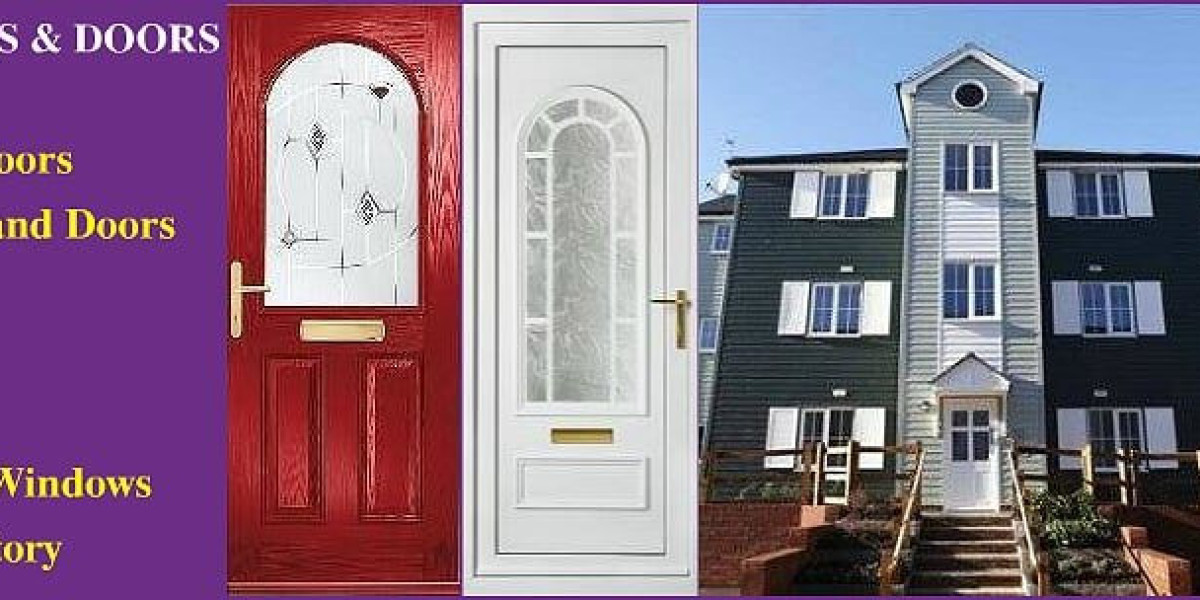Energy-Efficient Window Repair: Enhancing Home Comfort and Reducing Utility Bills
In the quest for a more sustainable and comfortable living environment, house owners often overlook the significance of energy-efficient window repair. Windows play a vital role in controling indoor temperature levels and keeping the energy effectiveness of a home. With time, nevertheless, they can establish concerns that compromise their efficiency, causing greater energy costs and decreased convenience. This short article dives into the significance of energy-efficient window repair, the common issues that occur, and the actions house owners can take to resolve these problems successfully.
The Importance of Energy-Efficient Windows
Windows are more than just openings that permit light and fresh air into a home. They are integral parts of a building's thermal envelope, which helps to keep a constant indoor temperature level. Energy-efficient windows are designed to minimize heat transfer, lower drafts, and avoid air leakage, ultimately resulting in lower heating and cooling costs. According to the U.S. Department of Energy, windows can represent 25% to 30% of residential heat loss and gain. For that reason, making sure that windows are in excellent condition is essential for maintaining a home's energy performance.

Common Window Problems and Their Impact on Energy Efficiency
Before diving into the repair process, it's crucial to recognize the common problems that can affect window performance. Here are a few of the most frequent issues:
Drafts and Air Leaks:
- Causes: Cracks, spaces, or worn-out weatherstripping.
- Effect: Drafts can substantially increase heating & cooling expenses by permitting conditioned air to escape and unconditioned air to go into.
Broken Seals:
- Causes: Aging, direct exposure to severe temperatures, or physical damage.
- Effect: Broken seals in double- or triple-pane windows can result in fogging and reduce insulation homes.
Damaged or Damaged Frames:
- Causes: Moisture damage, termite invasion, or basic wear and tear.
- Effect: Damaged frames can cause air leakages and make it tough to open or close windows, causing increased energy consumption.
Faulty Hardware:
- Causes: Rust, rust, or mechanical failure.
- Effect: Malfunctioning hardware can avoid sash windows repair from closing properly, triggering air leaks and lowering energy performance.
Cracked or Broken Glass:
- Causes: Physical effect or thermal tension.
- Effect: Broken glass not only postures a safety danger however likewise enables for significant heat loss or gain.
Actions for Energy-Efficient Window Repair
Repairing Double Glazed Windows energy-efficient windows can be an uncomplicated process if you follow these actions:
Identify the Problem:
- Conduct an extensive examination of all windows to recognize any concerns such as drafts, fogging, or damaged frames.
- Use a candle light or incense stick to detect air leaks by moving it around the window frame and noting where the flame flickers.
Seal Air Leaks:
- Weatherstripping: Apply weatherstripping around the window frame to seal spaces and prevent air leaks. Common types include foam, rubber, and vinyl.
- Caulking: Use a top quality, weather-resistant caulk to seal spaces between the window frame and the wall.
- Insulating Films: Install insulating movies on the window glass to minimize heat transfer and improve energy efficiency.
Replace Broken Seals:
- Diagnosis: If you see condensation or fogging between the panes of double- or triple-pane windows repair near me, the seal is most likely broken.
- Repairs: In some cases, the seal can be fixed by reapplying a sealant. Nevertheless, if the damage is extensive, it might be needed to replace the whole window unit.
Repair or Replace Damaged Frames:
- Assessment: Check for signs of wetness damage, rot, or termite invasion. If the damage is minor, you can frequently repair the frame.
- Repair: Sand down any rough areas, use a wood filler, and repaint or stain the frame.
- Replacement: For severe damage, consider replacing the entire window frame. Modern materials such as vinyl, fiberglass, and composite offer outstanding resilience and energy efficiency.
Service Window Hardware:
- Lubrication: Clean and lube the window hinges and locks to guarantee they run efficiently.
- Replacement: If hardware is beyond repair, replace it with new, energy-efficient elements.
Replace Cracked or Broken Glass:
- Safety First: Wear protective gloves and safety glasses when managing damaged glass.
- Expert Help: For intricate repairs, consider working with a professional to replace the glass and ensure it is effectively sealed.
Benefits of Energy-Efficient Window Repair
Lowered Energy Bills:
- By sealing air leakages and improving insulation, energy-efficient window repair can substantially reduce heating and cooling costs.
Increased Comfort:
- Properly fixed windows help maintain a consistent indoor temperature level, boosting total comfort.
Enhanced Durability:
- Regular maintenance and prompt repairs can extend the lifespan of your windows, reducing the requirement for regular replacements.
Ecological Impact:
- Energy-efficient windows add to a more sustainable home by lowering the demand for energy and decreasing carbon emissions.
DIY vs. Professional Repair
While some window repairs can be handled as DIY tasks, others might require professional assistance. Here's a breakdown to help you choose:
DIY Repairs:
- Sealing Air Leaks: Applying weatherstripping and caulking.
- Maintenance Hardware: Cleaning and oiling hinges and locks.
- Minor Frame Repairs: Sanding and painting.
Expert Repairs:
- Replacing Broken Seals: This typically needs specific tools and knowledge.
- Replacing Damaged Frames: Professional setup guarantees a best fit and correct sealing.
- Replacing Glass: Safety issues and the need for accurate measurements make this a task finest delegated specialists.
Often Asked Questions (FAQs)
How do I know if my windows need repair?
- Typical indications consist of drafts, fogging, trouble in opening or closing, and noticeable damage to the frame or glass.
What is the most typical cause of window leaks?
- Damaged weatherstripping and gaps in the caulking are the most regular causes of air leakages around windows.
Can I repair double glazed windows a damaged seal myself?
- In many cases, you can reapply a sealant, but for extensive damage, it is suggested to consult a professional.
What products are best for energy-efficient windows?
- Vinyl, fiberglass, and composite products offer excellent resilience and energy performance.
How frequently should I examine my windows?
- It is a good idea to inspect windows a minimum of when a year, ideally before the start of the heating or cooling season.
Are energy-efficient window repairs cost-efficient?
- Yes, the preliminary expense of repairs can be offset by long-term cost savings on energy costs and increased residential or commercial property worth.
Energy-efficient window repair is an essential aspect of home upkeep that can result in substantial benefits, consisting of lowered energy costs, increased comfort, and a more sustainable living environment. By following the actions laid out in this post and attending to typical window problems immediately, homeowners can ensure that their windows continue to carry out at their finest. Whether you pick to deal with repairs yourself or work with a professional, the investment in energy-efficient window repair is well worth the effort.

Extra Resources
For more detailed information on energy-efficient window repair, consider the list below resources:
- U.S. Department of Energy: Energy Efficiency and Renewable Energy
- Consumer Reports: Window Buying Guide
- Home Depot: Window Repair Tips
By taking a proactive technique to window repair, house owners can enjoy a more comfortable and energy-efficient home for several years to come.







